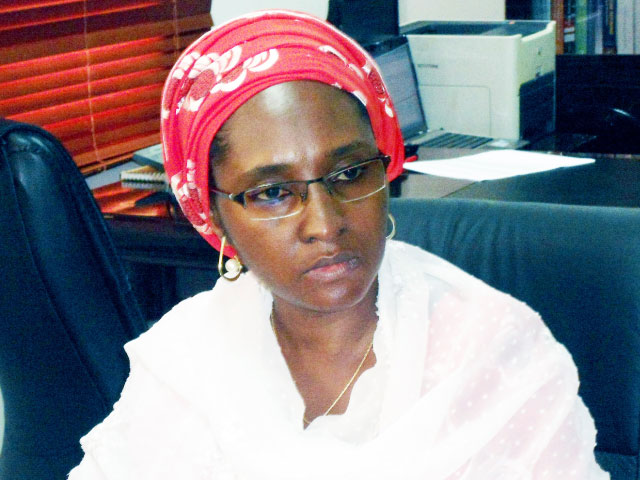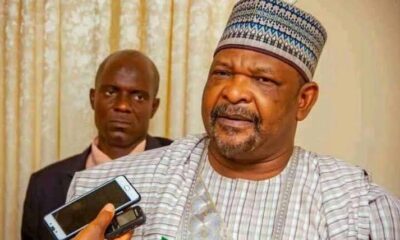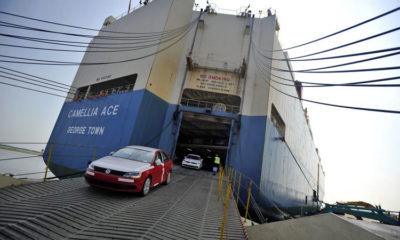- FG to Fund 2019 Budget Deficit With New Taxes, Concessions
The Federal Government plans to finance Nigeria’s N1.859tn budget deficit in 2019 by introducing new taxes and adopting a concessionary financing system under its privatisation programme.
The government also stated that the projected deficit, at 1.33 per cent of the Gross Domestic Products, was still within the threshold stipulated in the Fiscal Responsibility Act 2007.
This was contained in the presentation by the Minister of Finance, Zainab Ahmed, before the House of Representatives Joint Committee on the 2019-2021 Medium Term Expenditure Framework and Fiscal Strategy Paper in Abuja on Tuesday.
The panel is made up of the Committees on Finance; Appropriations; and Aid, Loans and Debt Management.
Ahmed said the government had designed a new strategy for revenue growth to ensure a sustainable revenue flow system.
She added that the ministry was in talks with the Federal Inland Revenue Service to identify new taxes, while the Treasury Single Account policy implementation would be extended to foreign accounts operated by government agencies.
The minister said, “We have identified new revenue streams and we are working to tap into them, especially the identification of new taxes for which we are working with the FIRS to bring that to fruition, of course with an amendment to relevant tax laws.
“We are working now to implement the TSA to cover foreign accounts operated by government agencies in order to broaden the net and minimise leakages.”
According to the document presented by the minister to the committee, the budget deficit is to be financed mainly by privatisation proceeds of N210bn and N1.649tn borrowings, with “a shift away from commercial to concessionary financing.”
Half of the borrowings, N824.82bn, would be sourced from domestic sources, with the other half from foreign sources.
Also, the Director-General, Budget Office of the Federation, Mr Ben Akabueze, said Nigeria was expected to continue to experience growth from 0.8 per cent in 2017 to 2.1 per cent in 2018 and 3.01 per cent in 2019, after emerging from recession in the second quarter of 2017.
Akabueze said, “As of the end of 2018, Federal Government aggregate revenue was N3.96tn, which is 55 per cent of the budget and which is higher than the 2017 revenue.”
He gave the breakdown as oil revenue of N2.32tn, which is 77 per cent of budget and 64 per cent higher than 2017; Company Income Tax of N637.25bn, which is 80 per cent of budget and 1.7 per cent higher than 2017; and Customs Collection of N303.91bn, which is 94 per cent of budget and 16 per cent higher than 2017.
He said, “Notwithstanding the softening in the international oil prices in late 2018, the considered opinion or view of most reputable oil industry analysts is that the downward trend is not necessarily reflective of the outlook for 2019. Currently, the average Brent oil price projection for 2019, by 32 different institutions with relevant expertise, is still about $69 per barrel.”
Akabueze assured Nigerians that the government would continue with its fiscal strategy of directing resources to most productive and growth-enhancing sectors, while efforts would be intensified to increase revenue. He added that the government would equally leverage private capital to supplement capital allocation from the budget.
He stressed, “We will closely monitor the situation and will respond to any sustained changes in the international oil price outlook for 2019. Mr President has directed the Nigerian National Petroleum Corporation to take all possible measures to achieve the targeted oil production of 2.3 million barrels per day.
“The budget proposal seeks to continue the reflationary and consolidation policies of the 2017 and 2018 budgets, respectively, which helped put the economy back on the path of growth.”
In his presentation, the Executive Chairman, FIRS, Mr Babatunde Fowler, stated that the tax office was optimistic about performing better than 2018
He said, “For the year 2018, the Federal Government gave the FIRS a collection target of N6.747tn. Analysis of actual collection figures for the year ended December 2018 shows that we collected a total of N5.320tn, which represents 78.86 per cent of the target.
“The FIRS 2019 – 2021 Revenue Framework is based on the 2019 – 2021 MTEF and FSP. While the collection figure for 2018 was significantly higher than ever before, the FIRS is not resting on it oars and is continuing with the implementation of various measures to ensure that tax revenue collection significantly improves further in 2019.”
Such measures, according to Fowler, include Strategic Revenue Growth Initiative, tax audit, use of technology such as VAT Auto Collect, State Offices of Accountant-General Platform, integration with GIFMIS for Federal Government MDAs, e-Service and mobile payment options.
Others, he said, were sustained enforcement activities, Voluntary Assets and Income Declaration Scheme and amendment to tax laws to improve collection.
On his part, the Comptroller-General, Nigeria Customs Service, Col. Hameed Ali (retd.), said there were strategies to actualise the 2019 budget target, stating that, “Every opportunity that will help in attaining the target shall be employed.”
Ali said, “The proposed automation of all forms of manual payment in every Customs formation is geared towards enhanced revenue and budget performance. This approach will certainly culture the integrity and sanity of service operations.”
“There shall be a holistic assessment and monitoring of all revenues collected on behalf of the service by the various designated commercial banks. This will create an avenue for genuine reconciliation of all accrued revenues against claimed remittances to the various designated government accounts.”
The Customs boss also noted that the strategy would also guide against diversion of any collectable revenue.
Also, the Accountant-General of the Federation, Mr Ahmed Idris, noted that June 30, 2019, date had been set for the closure of the 2018 budget, stating that Nigeria would not renege on its obligations to foreign and local creditors.

 Billionaire Watch4 weeks ago
Billionaire Watch4 weeks ago


 Naira4 weeks ago
Naira4 weeks ago


 Naira3 weeks ago
Naira3 weeks ago




 Naira3 weeks ago
Naira3 weeks ago




 Naira3 weeks ago
Naira3 weeks ago




 Naira2 weeks ago
Naira2 weeks ago
 Commodities3 weeks ago
Commodities3 weeks ago


 Sport Business4 weeks ago
Sport Business4 weeks ago


















